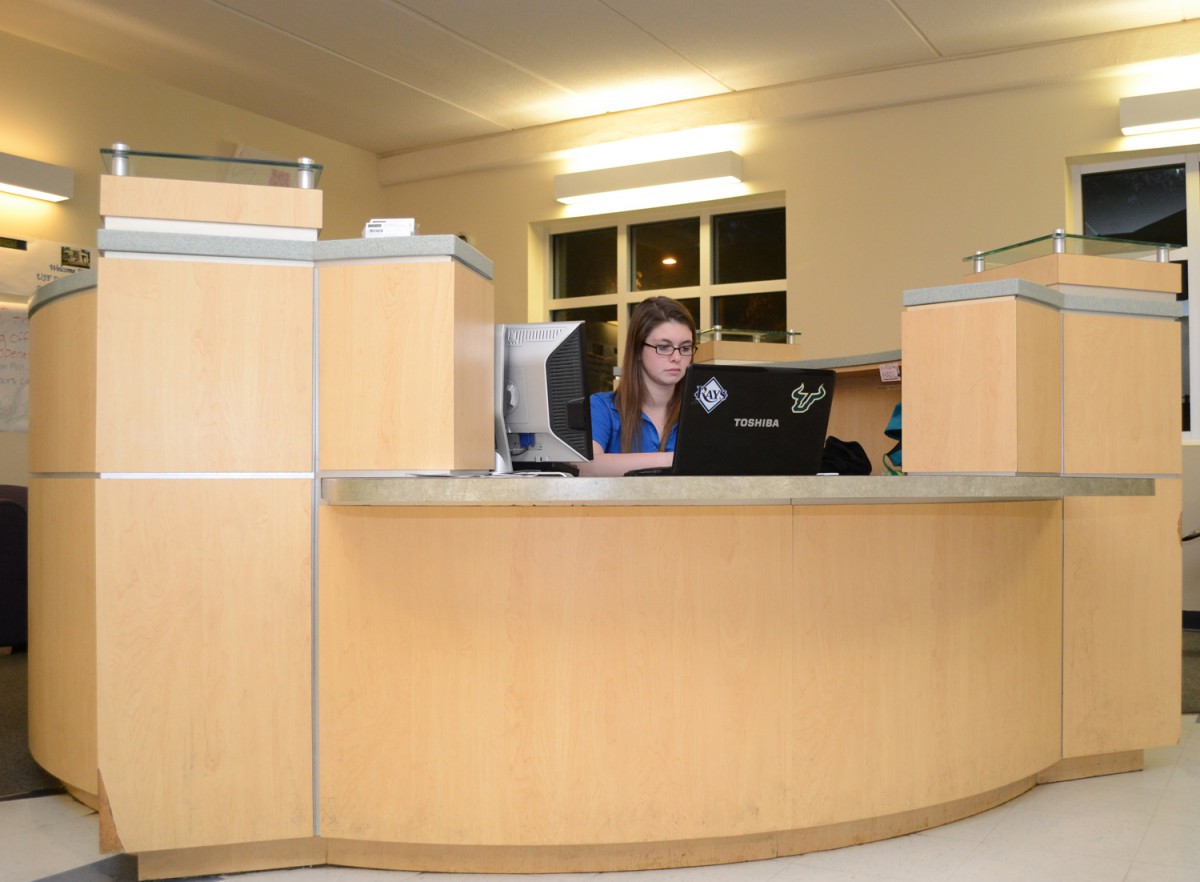The Residence Hall One professional staff is planning to remove the front desk and renovate the area into office space in the near future. As the university expands, the RHO staff feels there should be a housing operation accessible to students.
Students complained about the front desk removal and created a petition in protest. RHO residents Juliet Morales and Meaghan Habuda planned a meeting with Heather Klisanin, assistant director of residence life and housing, for Tuesday, Nov. 8. Klisanin said the students canceled their meeting and did not reschedule. Their plans fell through and so did potential change of the situation. Klisanin said she cannot help students if they do not speak to her.
“Juliet and I did take the initiative to inform the USFSP community on the important changes happening inside RHO, attempts I really believe made a difference,” Habuda said.
Habuda said she does not plan to live in RHO this spring semester, as a “last little revolt against the desk’s removal.”
Kent Kelso, former regional vice chancellor for student affairs, put the plans for the RHO desk removal in place.
“The plan was in place, but I implemented the plan,” Klisanin said.
Klisanin said the front desk staff was double-shifted. She said the students were not necessarily being paid to work, but to do their homework and study.
“Students can only do certain tasks because of state and government regulations,” Klisanin said.
The RHO professional staff had to look at their need of the student assistants, she said. The RHO office operates from 8 a.m. to 5 p.m., but the front desk did not. Klisanin said work was not being done because the desk was overstaffed.
Klisanin said the student assistants knew their work hours would decrease. She hired only one student this semester for Florida Work Study. The summer student assistants knew their work was seasonal. She said no one was asked to leave his or her job.
But Klisanin said the front desk was not in the original plans of RHO, and that it was an afterthought.
At the Florida Housing Officers meeting, other universities are not staffing for security reasons, she said.
“We don’t promise [the residents] security,” Klisanin said. She encourages the residents to make smart choices. “It’s ultimately up to their choices. … You can’t just let people in behind you. If someone gets frustrated, they probably don’t live here.”
The residents are held responsible for their guests. They are responsible for letting them enter the building, their damages, etc.
As for the renovations taking place in RHO, there will be offices for the professional staff.
“Offices should be accessible to general students—it’s hard in a locked building. We need true office structure,” Klisanin said.
Residents will have card access entry at the front door, and the door will be unlocked during business hours. At night, the residents will have to swipe their IDs twice to get into the residence part of the building.
“It’s important for the professional staff to look long-term,” Klisanin said.
There are two more residence halls in the university’s future plans. Looking ahead, the courtyard entrance will become the main entrance, Klisanin said.
The renovations and new access will not diminish security, but will probably improve it, Klisanin said.
The student assistants currently employed by RHO will be reassigned to “different kind of work,” including the mail room, Klisanin said.
She said the university needs a housing operation, with four residence halls soon to be on campus.
Klisanin said there is “rational, reasoning and support” behind the decision to remove the front desk.
Photo by Daniel Mutter



